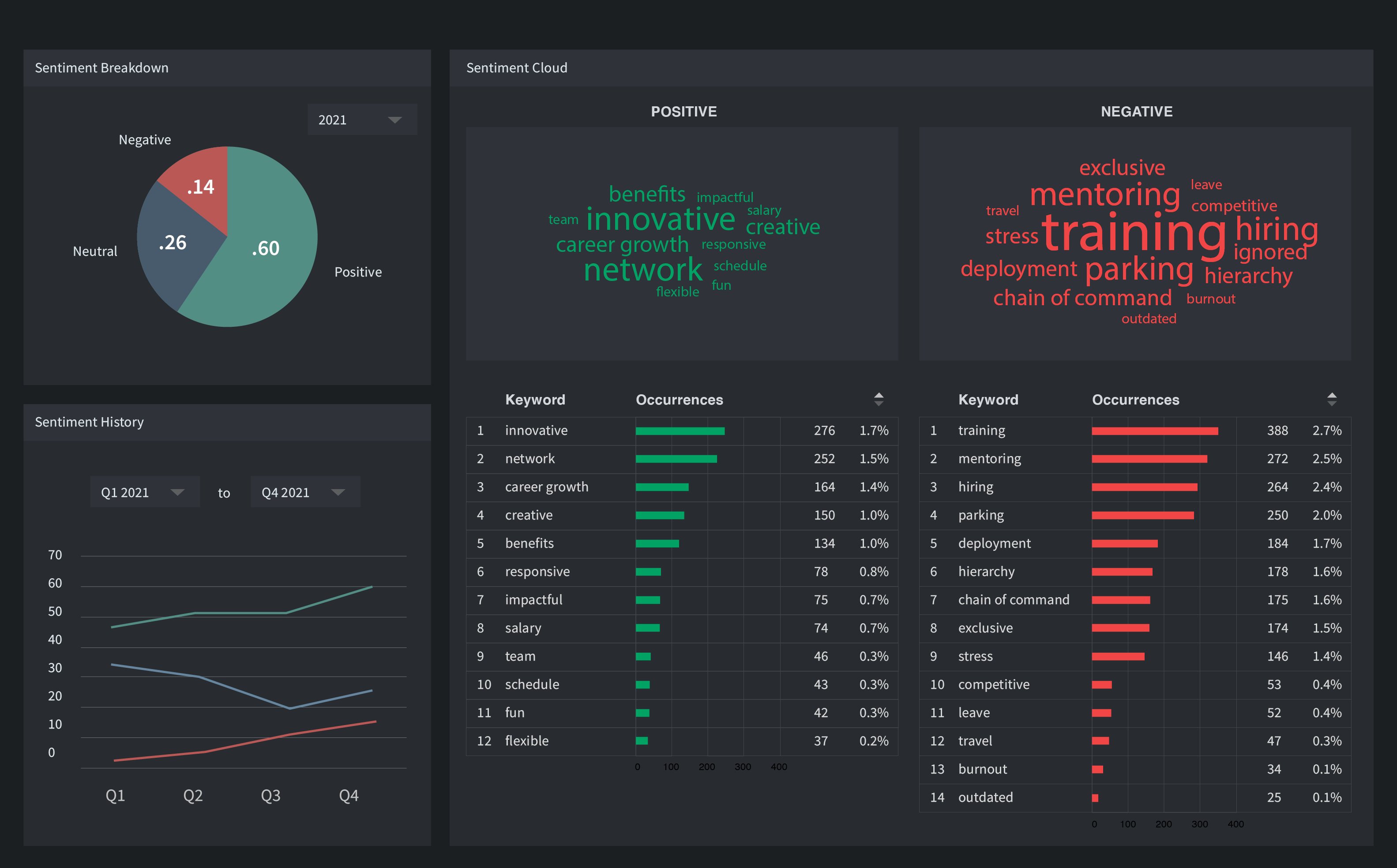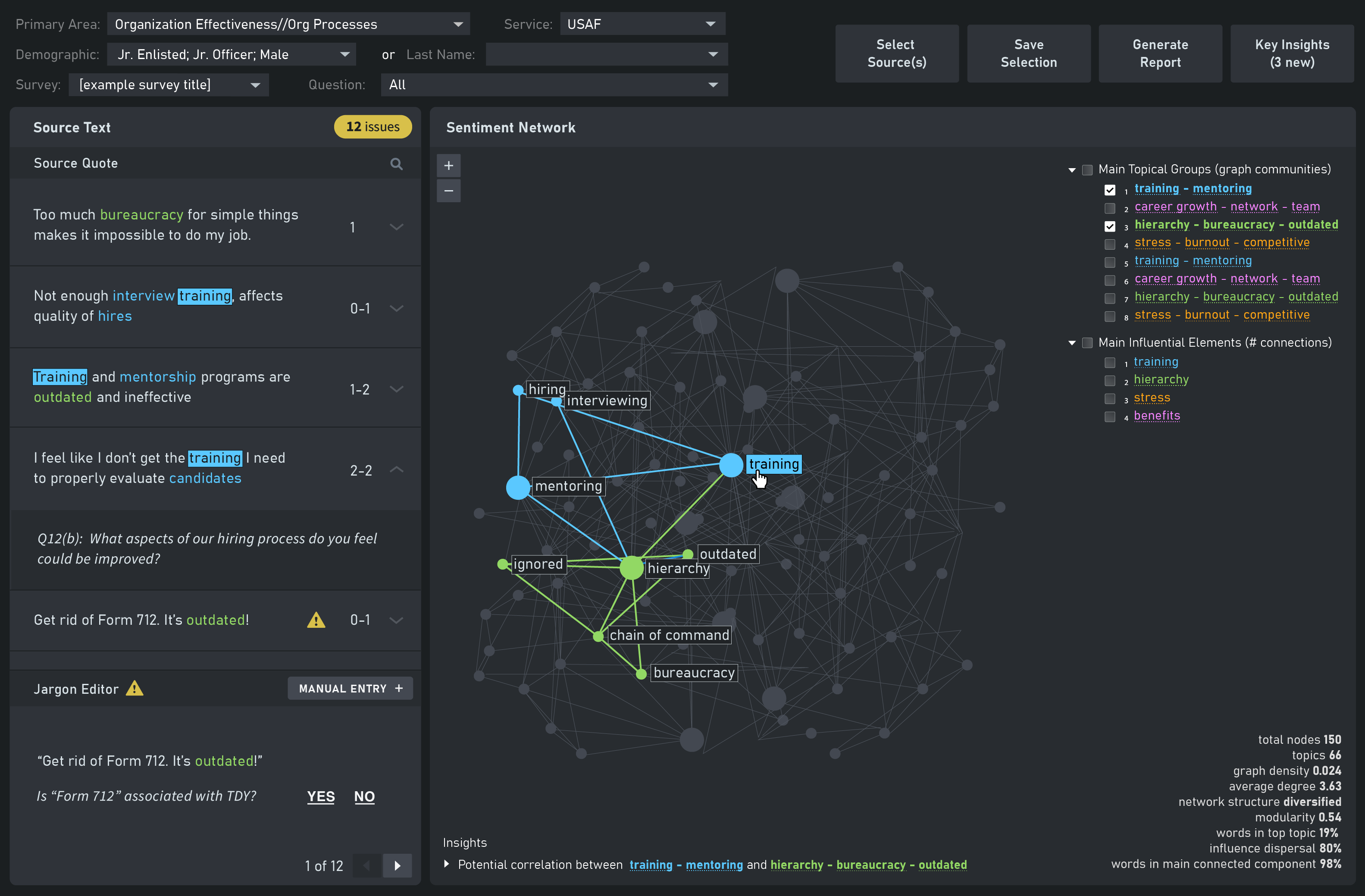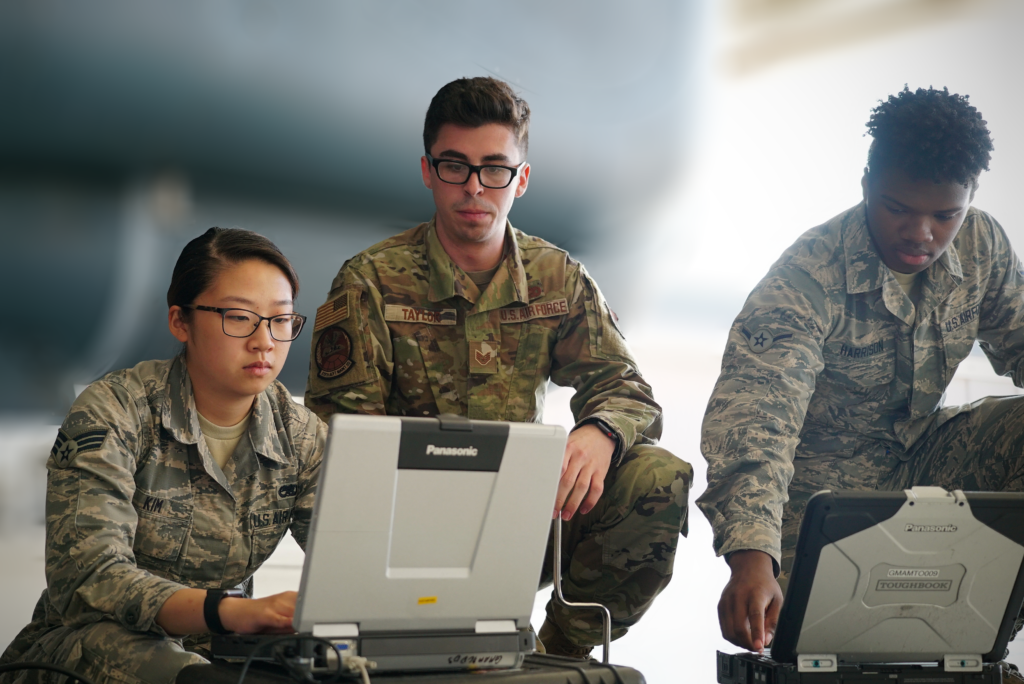JALAD
Natural language processing of free-form text
for sentiment and jargon analysis
Natural language processing of free-form text
for sentiment and jargon analysis
Jargon Association for Language Analysis in Domains (JALAD)
By applying leading-edge research in natural language processing (NLP) and best practices in human-machine interface design, Charles River scientists and engineers are creating a tool that the Defense Equal Opportunity Management Institute (DEOMI) and the Defense Human Resources Activity can use to draw insights about personnel. JALAD includes three key elements: a tool for jargon discovery, a model for understanding the text data, and an intuitive user interface.
“JALAD is exciting because we’re allowing the large amount of feedback from across the DoD to be heard and understood by the Defense Human Resources Activity.”

Dr. Terry Patten
Principal Scientist at Charles River Analytics and Principal Investigator on JALAD
The Jargon Association for Language Analysis in Domains (JALAD) program will save the DoD time and money, as the software automates the tedious task of gathering important and relevant data from frequent surveys and other information-gathering exercises.
Both a cohesive military and mission readiness depend on personnel satisfaction; therefore, the DoD frequently polls its personnel to get an accurate picture of sentiment. “It takes a lot of work to go through these surveys manually and often on tight deadlines,” says Dr. Terry Patten, Principal Scientist at Charles River Analytics and Principal Investigator on JALAD. In addition, “the military doesn’t just want to know whether people are happy or unhappy, they want to know what specific things they are happy or unhappy about,” Patten adds.
AI and NLP algorithms can automate the processing of free-form text, which is how personnel usually share feedback on these surveys. The problem, Patten says, is that military personnel often use jargon. To be effective, JALAD needs to detect jargon and systematically build a dictionary for future iterations.

Prototype of JALAD user interface for Commanders
JALAD’s Jargon Discovery and Semantic Association uses statistical techniques and machine learning algorithms. It discovers defense domain terms in the text data and then matches the terms to those in an official DoD dictionary. This process creates the automatically evolving JALAD dictionary. The JALAD model, using neural networks trained with the JALAD dictionary, performs aspect-based sentiment analysis. Aspect-based sentiment analysis breaks text data into fragments and assigns attitudes and feelings to specific features and topics. The results of this analysis are delivered through an intuitive interface tailored for specific user roles, including Commanders and analysts.
Unit Commanders need to review survey results quickly and easily, whereas researchers want to dive deeper into the data. To accommodate both sets of users, JALAD includes a role-tailored Human Machine Interface (HMI) to ensure that the results have the right information with the right level of detail for a given user.

Prototype of JALAD user interface for analysts
JALAD technology will enable analysts to quickly and easily understand trends in personnel opinions and perceptions. By helping the DoD maximize organizational cohesion, JALAD will support mission readiness. The technology developed for JALAD is also critical to numerous applications in the commercial sector. Another potential application for JALAD: Customer Relationship Management (CRM). Sentiment analysis is a major component of the established CRM market and the emerging market for employee sentiment and engagement. JALAD has the potential to provide a customizable NLP tool to data analysts in a variety of fields.
“When companies sell products, they want to know what customers like or don’t like about their products. There’s a huge market for that,” says Patten. Indeed, the global CRM market will reach $157.6 billion by 2030, according to a 2022 Grand View Research report. AI-driven systems like JALAD will play a key role in this growth.
Contact us to learn more about JALAD and our other capabilities in artificial intelligence.
This material is based upon work supported by the Defense Human Resources Activity (DHRA) under Contract No. H98210-22-C-0014, and by the Naval Air Warfare Center under Contract No. N68335-21-C-0512. Any opinions, findings and conclusions or recommendations expressed in this material are those of the author(s) and do not necessarily reflect the views of DHRA or NAVAIR.


